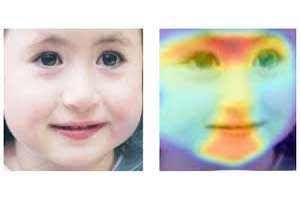- Home
- Editorial
- News
- Practice Guidelines
- Anesthesiology Guidelines
- Cancer Guidelines
- Cardiac Sciences Guidelines
- Critical Care Guidelines
- Dentistry Guidelines
- Dermatology Guidelines
- Diabetes and Endo Guidelines
- Diagnostics Guidelines
- ENT Guidelines
- Featured Practice Guidelines
- Gastroenterology Guidelines
- Geriatrics Guidelines
- Medicine Guidelines
- Nephrology Guidelines
- Neurosciences Guidelines
- Obs and Gynae Guidelines
- Ophthalmology Guidelines
- Orthopaedics Guidelines
- Paediatrics Guidelines
- Psychiatry Guidelines
- Pulmonology Guidelines
- Radiology Guidelines
- Surgery Guidelines
- Urology Guidelines
Rare genetic disorders detected by a face photo : AI Technology

An artificial intelligence-based program can help doctors and researchers to identify some rare genetic disorders by using just a photo of the patient’s face, paving the way for early—and cheap—diagnoses. It detects genetic disorder based on facial phenotypes, giving physicians a place to start. The program can be downloaded as an app on a phone.
In a study published in the journal Nature Medicine, the AI technology, called DeepGestalt, outperformed clinicians in identifying three initial experiments, two with the goal of distinguishing subjects with a target syndrome from other syndromes, and one of separating different genetic subtypes in Noonan syndrome. In each test, the AI proposed a list of potential syndromes and identified the correct syndrome in its top 10 suggestions 91% of the time.
According to the study, 8% of the population has diseases with key genetic components. Many syndromes have recognizable facial features that are highly informative to clinical geneticists. The technology could identify, for example, Angelman syndrome, a disorder affecting the nervous system with characteristic features such as strabismus, where the eyes point in different directions, protruding tongue and a wide mouth with widely spaced teeth.
Also Read: Artificial intelligence may reduce dose of gadolinium in MRI scans
Gurovich and his team trained DeepGestalt, a deep learning algorithm, by using 17,000 facial images of patients from a database of patients diagnosed with over 200 distinct genetic syndromes.
The technology works by applying the deep learning algorithm to the facial characteristics of the image provided, then producing a list of possible syndromes.
Also Read: Artificial intelligence system may improve survival in sepsis
It does not explain which facial features led to its prediction, the study said. To help the researchers better understand, the technology produces a heat map visualization looking at what regions of the face contributed to the classification of diseases, explained Gurovich.
All the images used in the trials were from patients already diagnosed with a condition; the technology didn't identify whether each patient had a genetic disorder, but identified possible disorders that had already been diagnosed.
But the algorithm is only as good as its training data set — and there’s a risk, especially where rare disorders that affect only small numbers of people worldwide are concerned, that companies and researchers will begin to silo and commodify their data sets.
For further reference follow the links: https://doi.org/10.1038/s41591-018-0279-0

Disclaimer: This site is primarily intended for healthcare professionals. Any content/information on this website does not replace the advice of medical and/or health professionals and should not be construed as medical/diagnostic advice/endorsement or prescription. Use of this site is subject to our terms of use, privacy policy, advertisement policy. © 2020 Minerva Medical Treatment Pvt Ltd